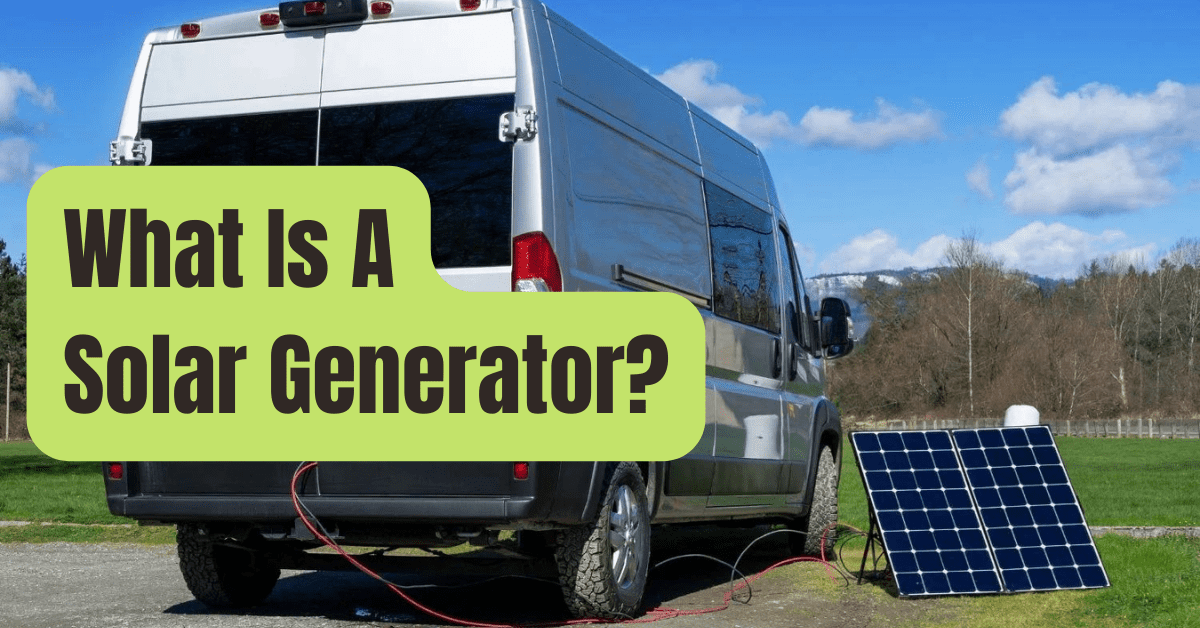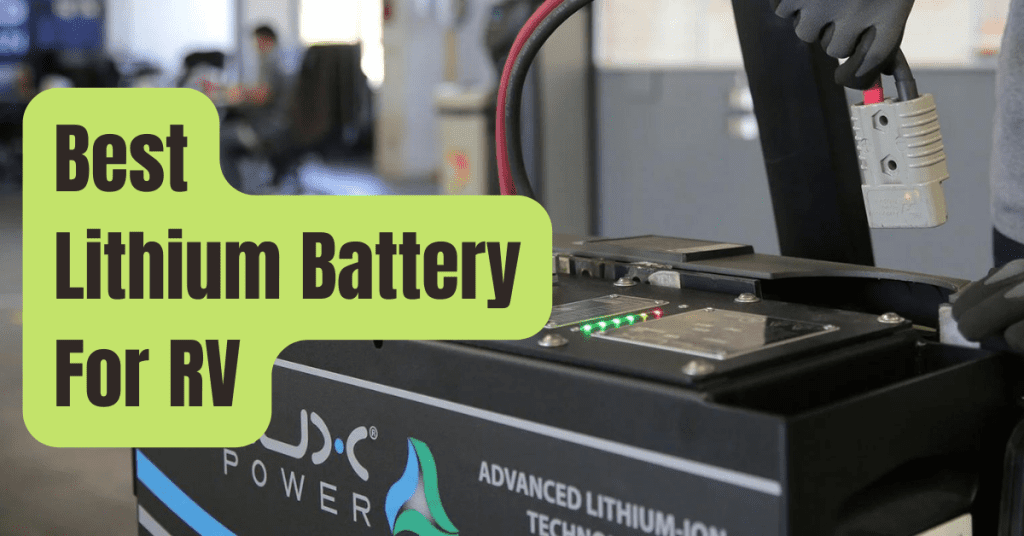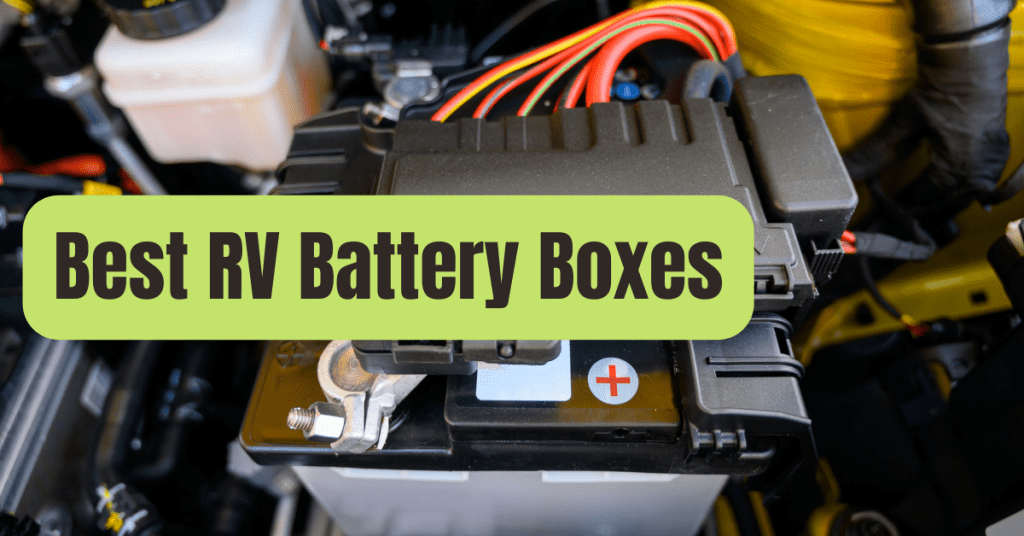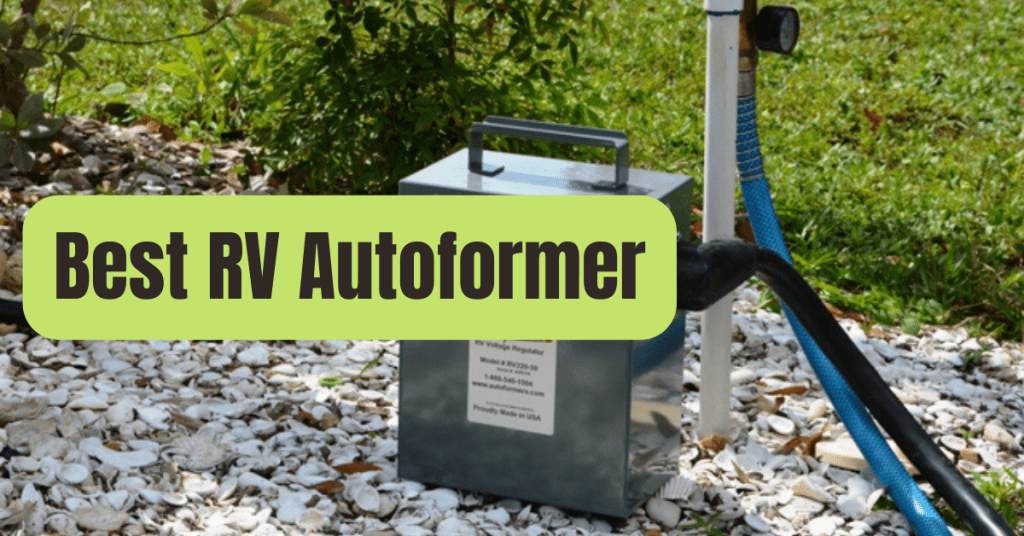Solar generators, such as our AC200P, are an excellent source of backup power for a variety of outdoor activities.
They’re small and light, and they can charge and power a variety of electrical gadgets using renewable energy.
They’re also environmentally friendly, and unlike traditional generators, they don’t need you to maintain a large supply of fuel on hand.
After all of this, the issue remains: how does a solar generator function?
A solar generator collects solar energy using solar panels and stores it in a solar battery incorporated within the generator.
After that, an inverter turns the energy into alternating current (AC power), which may subsequently be used in household appliances and other electrical equipment.
These three components, when connected, form a fully functional solar generator.
What Is A Solar Generator, And How Does It Work?
In the end, the phrase “solar generator” may apply to any device that can be powered by the sun’s energy.
When people talk about solar generators, they’re usually talking to a portable power station like the ones we offer at Bluetti Power.
These unique devices are capable of absorbing the sun’s energy via integrated solar panels and transporting it to an internal energy storage system (usually comprised of lithium-ion technology).
Solar generators may not be suitable for big residences, but they are ideal for boats, campervans, and as a backup power source in the event of a blackout in your region.
What Is A Solar Generator And How Does It Work?
Solar generators may produce off-grid electricity reliably and for long periods of time, using nothing more than the sun’s power.
Solar generators are a green power generating option that may be as effective as or even more successful than propane or gas-powered generators in many circumstances.
Solar generators transform solar energy into a usable electrical current by combining a solar panel, charge controller, battery system, and inverter into a compact system.
We’ll go through each of the components of solar generators separately to better understand how they function.
Battery: A solar generator must be able to store the energy it captures from the sun so that it may be used later.
The battery serves as a storage device.
Since about the year 2016, lithium-ion batteries have been employed in a broad range of solar generators on the market.
However, less efficient lead acid batteries, which are cheaper and more plentiful than lithium-ion technology, may be used.
With that stated, lithium-ion batteries offer a number of benefits over lead-acid batteries, and we advocate using lithium-ion batteries over lead-acid batteries since they are safer and more cost-effective in the long run.
Charge controller: The major objective of this component of the solar generator is to safeguard and increase the battery’s endurance.
Charge controllers often offer different charging and discharging functions depending on the battery and solar panel combo you’re using.
Charge controllers are necessary for a solar generator to function because they balance the power dynamic between the sun panels and the batteries.
Inverter: This component transforms the battery’s low direct current (DC) to alternating current (AC), which may be utilized to power daily home devices.
Because the energy does not need to be converted, appliances that use DC power do not require an inverter.
To learn more about the distinctions between AC and DC electricity, see this article.
Why Are Solar Generators So Important?
As a growing proportion of our population relies on these technology to live and remain connected with the rest of the world, having backup power at home is becoming more important.
Solar generators are not only beneficial for powering small appliances like fans, medium-sized freezers, and air conditioners, but they may also be utilized to give important medical equipment like CPAP machines and other at-home health monitoring with backup power.
Generators Powered By The Sun Vs. Generators Powered By Gas
While fuel generators may be useful in many of the above described situations, they have a number of disadvantages:
- Polluting
- Noisy
- Count on gasoline
- Heavy
When you’re in an emergency circumstance like a blackout, storm, or flood, it might be difficult to get access to any kind of fuel, rendering your gas generator ineffective.
The Price Of A Solar Power Generator
Your solar generator’s price is mostly determined by the brand and characteristics.
Generators that can generate and store more electricity are often more expensive.
The three internal components are the basic cause for this.
The solar battery, charge controller, and inverter.
The battery is by far the most costly component of a solar generator.
Many individuals are unaware that lithium is just a small portion of the battery’s overall composition.
The cobalt, which serves as the battery’s negative cathode, is the most costly component in a lithium battery.
Cobalt is far more difficult to get than lithium, owing to the fact that it is extracted as a byproduct of other metal mining processes.
The pricing of our solar generators is shown below, dependent on the power capacity:
| Model | Power |
| AC20 | 200Wh/120W |
| AC30 | 300Wh/300W |
| AC50S | 500Wh/300W |
| EB150 | 1500Wh/1000W |
| AC200P | 2000Wh/2000W |
The Following Are 5 Advantages Of Utilizing A Solar Generator.
#1. Sunlight Provides Free, Clean Energy.
When you utilize a solar generator, you are effectively using free solar energy rather than pricey and polluting fossil fuels.
You may obtain this free energy from the sun for as long as your solar panels last, which is typically 25 to 30 years.
#2. Low-Cost Maintenance
Solar generators, unlike most traditional fuel or gas generators, have no moving components and do not need liquid fuel.
Because there are no moving components, the chances of you having to pay for repairs are greatly reduced.
#3. Operation That Is Both Quiet And Clean
Aside from the obvious economical benefits of utilizing a solar generator over conventional fossil fuel systems, there are a number of environmental benefits to employing this green technology.
Air pollution and noise pollution are both caused by gas-powered generators, and although the latter is just bothersome, the former contributes to climate change.
#4. It’s A Good Time To Invest.
A solar panel’s entire lifetime is 25 to 30 years.
While gas-powered generators have a lengthy service life, often 20 to 40 years, they are not without flaws.
To keep them operating, you’ll have to execute a variety of maintenance tasks on them.
In order to operate the gadget, you will also need to purchase fuel on a regular basis.
Solar-powered generators do not need such efforts.
#5. It’s Light And Simple.
The majority of high-duty gas-powered generators are rather heavy, weighing up to 250 pounds in certain cases.
In contrast, our heavy-duty solar-powered EP500 Pro weighs just 182 pounds.
Obviously, the lighter a generator is, the less powerful it is, but in general, solar generators are significantly lighter than gas-powered generators.
Should You Invest In A Solar Power Generator?
A solar generator may be the best option for you if your primary goal is to power smaller appliances like those found on boats or campervans.
Solar generators provide a unique energy alternative for individuals who find themselves on the go and in need of additional power due to its ease of travel and operation.
However, there are several disadvantages, such as restricted power capacity, lengthy recharging time, and dependency on the sun.
All of this limits the technology’s use as a whole-house backup power solution.
We advocate building a rooftop or ground mounted solar system with a house battery system installed for those of you who want a backup energy supply from a green power source.
What Is The Best Solar Generator Battery?
Lead acid, lithium ion, and salt water batteries are the most common chemical compositions utilized in solar generators.
Lithium ion batteries are the most common choice for solar powered generators, while other kinds of batteries may be more cost-effective.
#1. The Presence Of Lead Acid
For decades, lead acid batteries have been utilized in off-grid applications, making them one of the most well-tested battery options.
While they may have a shorter life expectancy than other battery types, they are presently one of the most cost-effective solutions available.
#2. Lithium Ion Batteries
Lead acid batteries are heavier and less compact than lithium ion batteries.
When compared to their lead acid cousins, they also survive far longer.
The high cost of lithium ion batteries is the only drawback.
However, in the long run, the expenditure is justified since they will ultimately pay for themselves.
#3. The Use Of Saltwater
Saltwater batteries, unlike other battery storage solutions, do not include any heavy metals and instead depend on salt electrolytes.
Lead acid and lithium ion batteries must be disposed of in a certain manner; however, a saltwater battery may be simply recycled.
Saltwater batteries haven’t been thoroughly tested since they’re a relatively new technology, and the only firm that develops them, Aquion, declared bankruptcy in 2017.
Finally, Some Ideas
Solar power generators are a better option than standard gas generators since they are fume-free and silent.
They emit no hazardous emissions and may help you lower your carbon footprint while allowing you to operate inside and out.
We propose that you go through our broad assortment of solar-powered generators in our store.
Alternatively, you may learn about the most powerful solar generators in our post.










